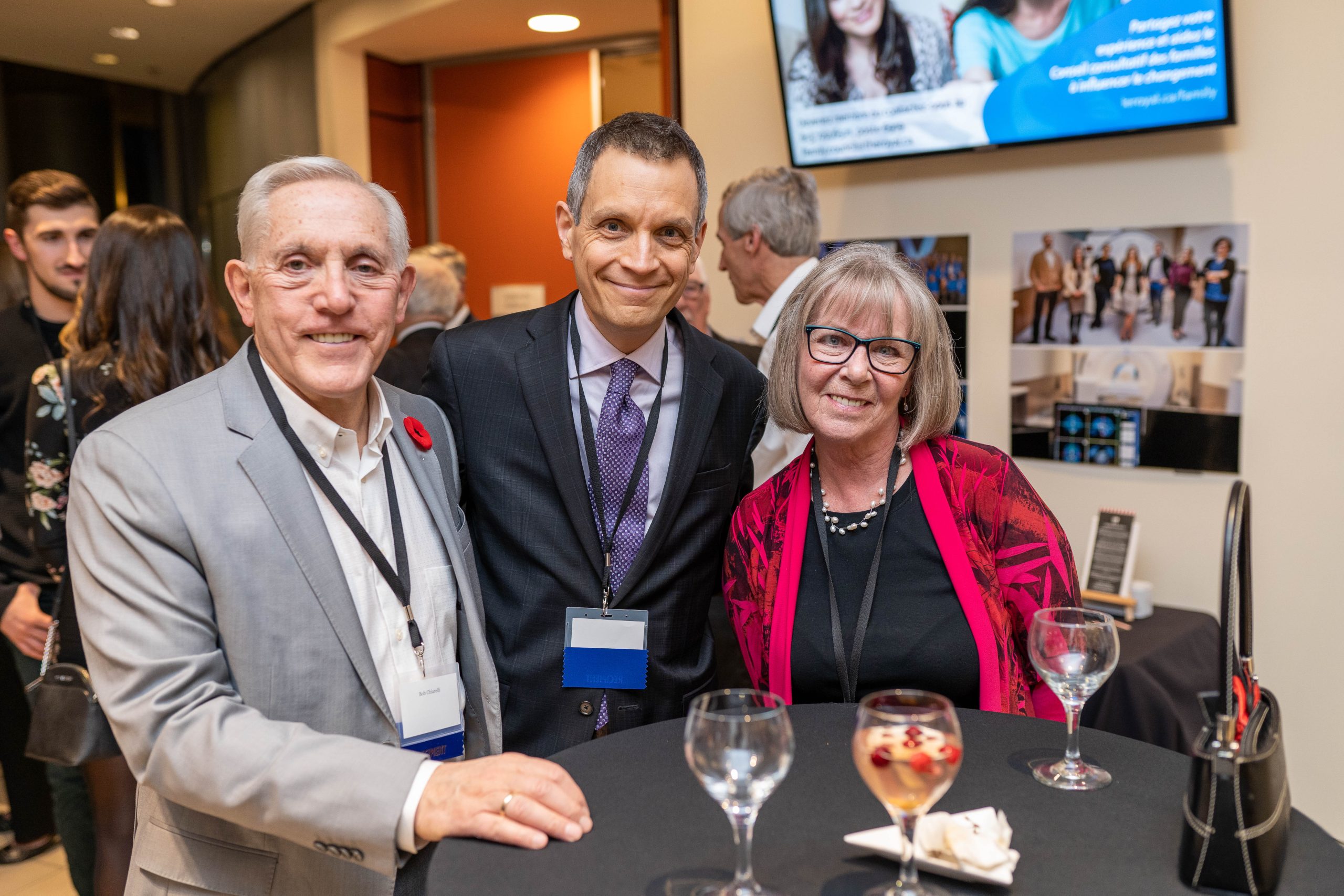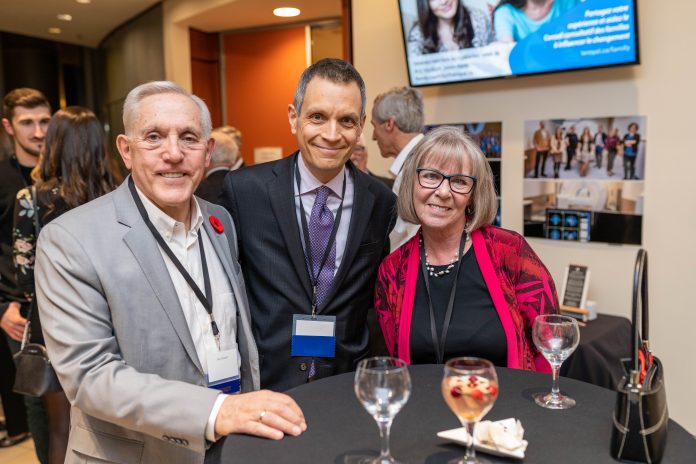Bob Chiarelli, Mark Sutcliffe among 40 Ottawa leaders recognized by Royal Ottawa Foundation
By Yose Cormier
Two Kitchissippi residents were recently recognized for their efforts in advancing mental health research and education in Ottawa.
Former Ottawa mayor and Ottawa West and Ottawa West-Nepean MPP Bob Chiarelli and Mark Sutcliffe, broadcaster and journalist with 1310 News, were among 40 Ottawa community leaders recognized last November by the Royal Ottawa Foundation as part of the organization’s 40th anniversary.
“We recognized some incredible volunteers and donors who have been leaders in supporting the Royal,” says Mitchell Bellman, President and CEO of Royal Ottawa Foundation. “We are able to deliver world class care and research because wonderful donors like these in our community believe in the importance of supporting mental health.”

Both Mark and Bob have seen first-hand the effects of mental health.
“My son was diagnosed with schizophrenia when he was 21,” says Bob, who joined the foundation’s board in 2006, helping implement the successful breakfast fundraiser and participate in the “You know who I Am” campaign, which featured former Ottawa Senators Daniel Alfredson.
“My son was very successful as a student. He was enrolled at Waterloo University, in a co-op program. He had high grades, but then there started to be behavioural changes. The reality is that there is no cure. It can be managed, but it becomes a lifelong challenge. That said, the illness has very wide range of symptoms and while some need to be hospitalized permanently, some can get to a point to function and work at a job. You never know where you are going to land.”
Schizophrenia is an illness that strikes early, with 90% of those diagnosed between the ages of 18-25 in males and 25 to 35 in females. It affects approximately one in 100 people.
It’s a very misunderstood illness, much like most mental illnesses, says Bob.
“There wasn’t a lot of talk about the illness (when my son was diagnosed), but because I was in public life, people would ask about my kids and, unprompted, I would mention that my son had schizophrenia. That would open floodgates, people telling me about their husband, uncle, aunt, etc.”.
Just because he answered the question without shame or stigma, it would bring it out into the open, he says.
Mark grew up in Kitchissippi (his mom is still in the same house he grew up in) and has lived in Wellington West for 21 years now. He served nine years on the board of the foundation and has also emceed many events.
As a journalist, Mark noticed that at the root of a lot of the stories he was working on – ones dealing with crime, homelessness, poverty, family issues. – were mental health and addiction issues.
“I was starting to see it more and more and that’s why I got involved with the Royal,” he says.
“When I first got involved, the Royal was in a different building, an old one that was falling apart. And there was no conversation around mental health: it just wasn’t talked about,” Mark says. “I think the annual budget was less than what we now raise at the breakfast fundraiser.”
Mark was involved in a number of initiatives, including laying the groundwork for building the new hospital, which he acknowledges was an “enormous undertaking”.
Both Mark and Bob say the whole discussion around mental health changed when Daniel Alfredsson started supporting the Royal. When he came forward, that was a game changer.
“I think it really opened the door for others to share their stories, to share their family stories,” says Mark.
Bob says that Daniel was only a recent superstar and everyone wanted him to endorse their products or causes.
“But on his own, without telling the Sens, he approached the hospital and asked how he could help. His sister had mental health issues and the Royal’s cause was dear to him,” explains Bob.
That campaign helped increase the Royal’s profile, remove a lot of the stigma around mental health and increased awareness and fundraising efforts for this cause.
“I’m glad I was able to witness the change. We are not there yet but we have come a long way to encourage people to talk and reduce the stigma around mental health,” says Bob.
